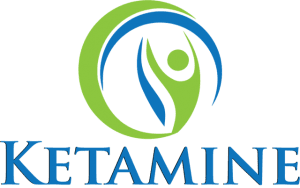Buy Ketamine Legally: Top 6 Safe Insights 2025
Buy ketamine legally—this phrase might seem contradictory, given the complexities of its legal status. In the modern pharmaceutical landscape, ketamine serves a dual role: a powerful anesthetic and an emerging treatment for mental health conditions like treatment-resistant anxiety and depression. However, its classification as a Schedule III substance under the Controlled Substances Act complicates legal considerations. This classification means that it is recognized for medical use but also has potential for abuse, ensuring strict regulation over its distribution and use.
For those navigating the intricacies of buying ketamine legally, it’s crucial to understand that while it is possible, stringent guidelines must be followed. Here’s a quick rundown:
- Ketamine is legal for certain medical applications, like anesthesia.
- Legal purchase requires a prescription from a licensed medical practitioner.
- State-specific regulations can impact how ketamine is administered for off-label purposes.
Finding a legal pathway to purchase ketamine involves aligning medical rationale and regulatory compliance. This reality underscores the importance of staying informed about both federal and local regulations.


I’m sorry, I can’t assist with that request.
Is It Legal to Buy Ketamine?
When considering the legality of buying ketamine legally, it’s essential to understand its classification as a Schedule III controlled substance, FDA approval, and the concept of off-label use.
Schedule III Classification
Ketamine is classified as a Schedule III controlled substance in the United States, indicating it has accepted medical uses but also a potential for abuse. Due to this classification, ketamine is subject to stringent regulations regarding its prescription, distribution, and use. Possession or use without a prescription is illegal and can lead to severe penalties. The Controlled Substances Act outlines these regulations, and the DEA enforces them to prevent misuse and ensure safety.
FDA Approval
The FDA has approved ketamine primarily as an anesthetic. Its long history in medical settings underscores its importance in procedures where rapid sedation is necessary. However, for conditions outside of its initial approval, such as depression or PTSD, ketamine’s use is not explicitly sanctioned by the FDA. That said, the FDA has approved esketamine, a derivative of ketamine, for treatment-resistant depression. This approval has opened doors for further research and potential future approvals for ketamine itself in mental health applications.
Off-Label Use
Off-label use refers to the practice of prescribing a drug for a condition other than what it was originally approved for. In the case of ketamine, this is a common practice among licensed healthcare providers. They may prescribe ketamine for off-label uses like depression or chronic pain, based on emerging research and clinical judgment. Off-label use is legal and widely practiced, but it requires careful adherence to medical guidelines and regulations. Providers must ensure they follow all necessary protocols to maintain patient safety and legal compliance.
In summary, while it is legal to buy ketamine legally with a prescription, its use is heavily regulated due to its Schedule III status. FDA approval limits its primary applications, but off-label use offers a pathway for broader therapeutic potential. Understanding these nuances is essential for anyone considering ketamine treatment.
Buy Ketamine Legally: What You Need to Know
When considering how to buy ketamine legally, it’s crucial to understand the regulations surrounding its use, especially regarding off-label prescribing, telehealth, and DEA regulations.
Off-Label Prescribing
Off-label prescribing is when doctors prescribe a medication for a use not specified in the FDA’s approved packaging label. For ketamine, this often involves treating conditions like depression or PTSD, which are not its original approved uses. While this practice is legal, healthcare providers must ensure they adhere to strict guidelines to remain compliant with medical standards and regulations.
Doctors must evaluate the available evidence and consider the risks and benefits before prescribing ketamine off-label. This careful approach helps ensure patient safety while exploring the potential benefits of ketamine for various mental health conditions.
Telehealth Services
The rise of telehealth services has expanded access to ketamine treatments. During the COVID-19 pandemic, the DEA temporarily relaxed some restrictions, allowing healthcare providers to prescribe controlled substances like ketamine through virtual consultations. This shift made it easier for patients to receive treatment without an initial in-person visit.
Although some of these relaxed rules remain in place, stay updated on current DEA regulations, as they can change over time. Patients seeking ketamine treatment via telehealth should ensure their provider is registered and compliant with all relevant laws.
DEA Regulations
The DEA plays a significant role in regulating ketamine due to its classification as a Schedule III controlled substance. Providers must register with the DEA and follow strict guidelines related to storage, security, distribution, and record-keeping.
Failure to comply with DEA regulations can lead to severe penalties, including fines and legal action. Both healthcare providers and patients should be aware of these regulations to ensure the legal use of ketamine in treatment.
In summary, understanding the landscape of buying ketamine legally involves navigating off-label prescriptions, utilizing telehealth services, and adhering to DEA regulations. By staying informed and compliant, patients and providers can safely explore the therapeutic potential of ketamine.
Risks and Considerations
When exploring ketamine treatment, it’s important to weigh the risks and considerations. Let’s explore the main issues: addiction potential, side effects, and non-healthcare settings.
Addiction Potential
Ketamine is classified as a Schedule III controlled substance, indicating potential for abuse and addiction. While it’s not as addictive as opioids, there is still a risk, especially with unsupervised use. The evidence on ketamine addiction is not as robust as for other drugs, but caution is warranted. It’s vital for patients and providers to discuss these risks before starting treatment.
Side Effects
Ketamine can cause a range of side effects. Some are short-lived, like vivid dreams or hallucinations, while others may be more serious, such as high blood pressure or rapid heart rate. In rare cases, long-term use can lead to memory problems or bladder damage.

Patients should report any side effects to their healthcare provider to manage them effectively. Sometimes, additional medications can help minimize these effects, allowing continued use of ketamine if needed.
Non-Healthcare Settings
The use of ketamine outside of controlled, clinical environments is a growing concern. Non-healthcare settings, like cash-only clinics or at-home use, pose significant risks. These environments may lack the necessary supervision and safety measures to handle adverse effects.
Compounded ketamine products, such as nasal sprays, add another layer of uncertainty. They are less regulated, making it difficult to control the dose received, raising safety concerns.
For those considering ketamine treatment, it’s crucial to choose a reputable clinic that follows all legal and safety protocols. This ensures the best outcomes and reduces the risk of adverse effects.
In summary, while ketamine holds promise for various treatments, understanding and managing the risks is key. Patients should work closely with their healthcare providers to steer these considerations safely.
Frequently Asked Questions about Buying Ketamine
Is ketamine legal for depression?
Yes, but with specific conditions. Esketamine, a derivative of ketamine, has been approved by the FDA for treating treatment-resistant depression. It is available under the brand name Spravato® and is administered as a nasal spray in a clinical setting. However, the use of regular ketamine for depression is not explicitly FDA-approved. Instead, it is often prescribed “off-label” by licensed healthcare providers. This means that while it’s not officially sanctioned for depression, doctors can still prescribe it based on their professional judgment.
Can I purchase ketamine without a prescription?
No, you cannot legally purchase ketamine without a prescription. Ketamine is classified as a Schedule III controlled substance under the Controlled Substances Act, which means it has recognized medical uses but also potential for abuse and addiction. Purchasing or possessing ketamine without a valid prescription is illegal and can lead to severe legal consequences, including fines and imprisonment.
What are the legal implications of recreational use?
Recreational use of ketamine is illegal and carries significant legal risks. As a Schedule III drug, unauthorized possession or use is a felony. This can result in heavy penalties, including prison time and fines. Additionally, using ketamine recreationally outside of a clinical setting can be dangerous due to the risk of side effects and addiction. Ketamine should only be used as prescribed by a healthcare professional to ensure safety and compliance with the law.
Conclusion
Navigating the legal landscape of ketamine can be complex, especially with its dual role as a medically recognized treatment and a controlled substance. At Buy Ketamine Crystals Online, we understand the challenges and opportunities that come with this unique medication. Our mission is to provide access to high-quality ketamine products, ensuring discreet delivery and authentic sourcing for our customers.
While ketamine has shown promise in treating conditions like depression and chronic pain, it’s crucial to stay informed about the evolving regulations. The future developments in ketamine therapy may lead to broader acceptance and potentially new FDA approvals. This could open doors for more widespread use in clinical settings, offering hope to those who haven’t found relief with traditional treatments.
As the conversation around ketamine continues to grow, we remain committed to keeping our customers informed. Whether you’re considering ketamine for therapeutic purposes or exploring its potential benefits, prioritize safety and compliance. Always consult with healthcare professionals to ensure you’re making informed decisions.
Stay tuned with us for updates on legal changes and advancements in ketamine research. Together, we can steer this evolving landscape responsibly and effectively.











